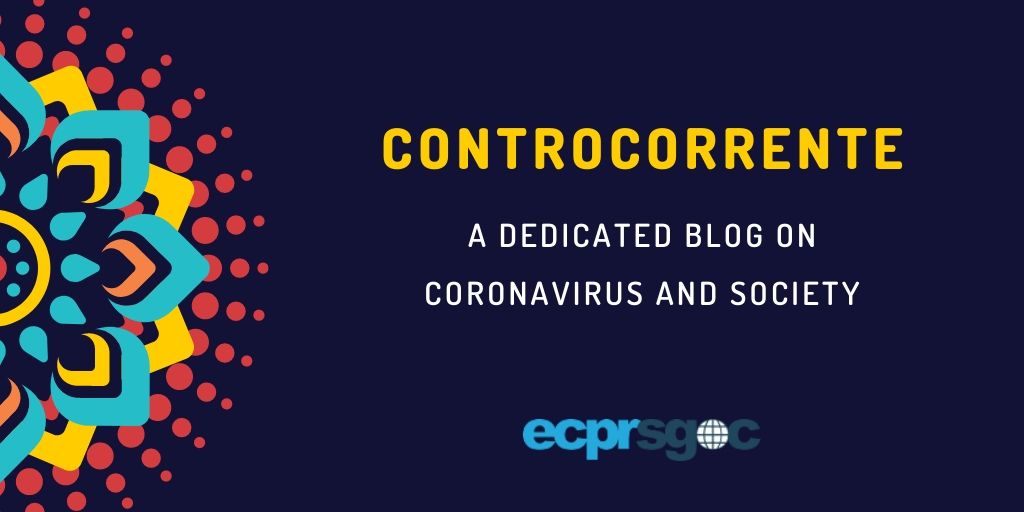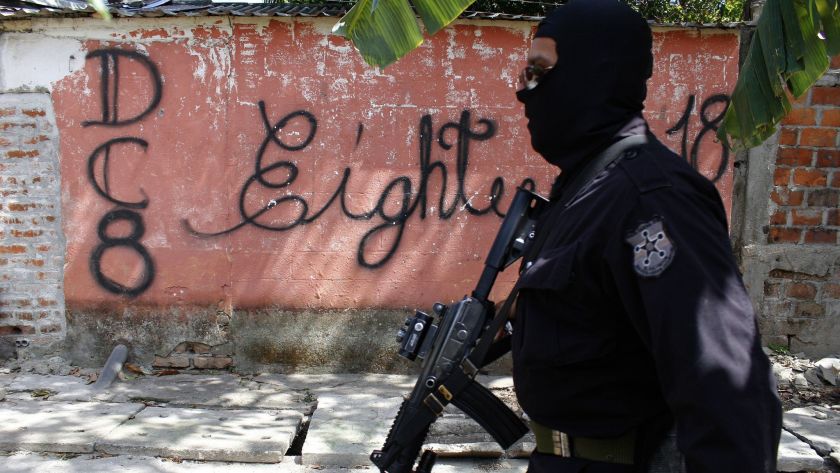
Between Covid-19 and Organised Crime: Some preliminary notes
Ludmila Quirós
Global Initiative Against Transnational Organised Crime (GITOC), SHOC-RUSI
Since the covid-19 pandemic went global, human beings have been experiencing what geographer Alison Mountz (2020) point out as a proliferation of spaces of confinements through which we are interconnected yet socially-distanced. In a sudden way, we started living under surveillance, controlled by apps that share proximity information and watched by drones. Gradually, we get used to talking about social distancing, telework, isolation, lockdowns and curfews. We get used to meet virtually, to look at the world behind a window, to live in a way that become indistinguishable from virtual reality.
Since its emergency in the Chinese city of Wuhan, the SARS-CoV2 virus has been controlling a good part of our daily life, conditioning our work and testing our capacity for resilience and adaptation. Although, no one is sure about what will happen once pandemic ends, what we know is that once it occurs we will inhabit a different world, probably more unsafe, anti-social and more dystopic.
In this sense, even if it is not clear if covid-19 will shift the global order, there will certainly be changes, but as Joseph Nye pointed out ‘one should be wary of assuming that big causes have big effects’. This means that while the covid-19 pandemic will accentuate geopolitical and ideological rivalries between China and the United States, this will probably not be the final stage of the global power shift from West to East.
Beyond this, as I mentioned above, the covid-19 pandemic will be responsible for a more dangerous, risky and unsafe world, in which unconventional threats such as transnational organised crime (TOC) will continue to pose a significant and growing threat to national and international security.
Precisely, at the moment in which the pandemic of coronavirus triggered off a wave of lockdowns around the world, we begin to identify a different level of adaptation of transnational organised crime actors to the environment. However, there isn’t a homogeneus trend, therefore the long-term effects that covid-19 will probably have on transnational organised crime are yet to be seen.
In my particular experience, a week before the covid-19 pandemic closed the borders of the entire world, I was in the italian city of Naples, where I was doing fieldwork for a research project on Latin American criminal organizations in Europe. As a practitioner in organised crime and international security related issues, I spent the last two years of my academic life studying a wide-range of criminal structures from Brazil, in order to explore the path to internationalization of brazilian prison-gangs and its supposedly key role in the trans-Atlantic drug trade. However, the covid-19 outbreak and the subsequent Italian government decision to impose a national curfew to halt coronavirus, forced me to return home and to change the course of my research.

Since then, I have spent the following weeks taken data from different sources. In this context, this article is the result of much of the work done in these days of isolation. A preliminary work that is, of course, far from being an in-depth study on organised crime. In this sense, it’s necessary to make clear that the purpose of this writing is not to present a new research agenda. Firstly, because political and social phenomena are complex and changing. In this sense, I am reflecting on events that are happening now, by which the impacts and effects on transnational organised crime are difficult to fully understand. Secondly, because we do not have complete information. Thirdly, because of cases tend to vary, we have to be careful and not to generalise in a wrong way. As Anna Sergi tweeted ‘the south of Italy and the mafias are not all the same, you need more than one or two cases to generalise about covid-19”. Finally, because the pandemic is an exceptional case.
Having said that, in the following I highlight some preliminary notes on organised crime in times of pandemic.
• Criminal violence in Latin America may get worse due to pandemic. The recent acceleration of infection in the region caused prison riots in Republica Dominicana and Colombia. Moreover, violence could also arise as criminal groups see their illegal economy affected. Argentina’s worsening economic and social crisis could trigger a proliferation of micro-trafficking networks as subsistence economy.
• Criminal groups such as Maras in Central America, gangs in Cape Town, mexican Cartels and faccões in Brazil could acquire more legitimacy by adopting a ‘winning hearts and minds’ strategy. (i.e. Sinaloa Cartel and Los Zetas did handouts during the Covid-19, Maras in El Salvador have agreed to stop charging extortion, Brazilian gangs have imposed curfews in Rio de Janeiro in order to protect favela from the coronavirus outbreak).
• New crime trends have emerged (crime gangs in Western Balkans are investing in production of sanitary and medical equipment), others have increased (cyber crime, misinformation, fraud).
• Differences in quarantine and curfews measures around the world could reinforce certain illicit geographies to the detriment of others
• State controls imposed by governments to halt coronavirus have failed up to day to recover ‘illegal spaces’.
• Armed insurgents, drug cartels, gangs and terrorists became ‘alternative’ providers of health services.
Sources
Mountz, Alison (2020). The many facets of pandemic vulnerability. Open Democracy. Available at https://www.opendemocracy.net/en/pandemic-border/many-facets-pandemic-vulnerability/
Nye, Joseph (2020). No, The Coronavirus pandemic will not change the Global Order. Foreign Policy. Available at https://foreignpolicy.com/2020/04/16/coronavirus-pandemic-china-united-states-power-competition/
***
This blog aims to reflect the opinions, thoughts, and concerns of academics and researchers related to COVID-19. All views belong to authors and it does not represent the views of any organisation.

